For anyone experiencing hair loss, the search for effective solutions can feel overwhelming. Fortunately, advancements in laser hair therapy and other non-invasive treatments offer promising opportunities for those looking to restore their hair naturally. With a blend of modern science and holistic approaches, achieving optimal hair health is becoming increasingly attainable. These solutions have democratized access to hair restoration, allowing more people to explore restorative strategies without the fear of invasive medical procedures. Today, individuals are empowered to take control of their hair health with a wider array of treatment options.
With a growing emphasis on wellness, many individuals are incorporating holistic practices alongside modern treatments. These practices support overall health, creating a more comprehensive approach to hair care. As non-invasive treatments continue to gain popularity, people are turning to these methods to improve not only their hair but their general well-being. Furthermore, these advancements make it possible for those with busy lifestyles to commit to treatments that don’t require significant time or recovery. As the field evolves, more accessible options will likely emerge to cater to different needs.
Non-Invasive Solutions: An Overview
The quest for hair regrowth is now less daunting, thanks to non-invasive methods like laser treatments and nutritional supplementation. These solutions are popular because they offer convenience and minimal side effects, providing avenues for individuals who prefer to avoid surgery. The evolution of these techniques continues to broaden the options available for individuals seeking fuller hair. Increasingly, these treatments have become part of a broader wellness approach, where individuals are looking to integrate them into healthier lifestyle practices. As more people adopt these approaches, a shift toward preventative care and long-term maintenance of hair health is taking place.
Many of these non-invasive treatments are also appealing due to their affordability in comparison to surgical alternatives. With fewer barriers to entry, more people can try various treatments before deciding on the one that works best for them. This makes it easier for individuals to stay committed to the process, knowing that they are working with safe and flexible options. Additionally, many practitioners are offering personalized care plans, ensuring each individual’s specific needs are addressed. These innovations are contributing to a more inclusive approach to hair restoration.
Understanding Hair Growth Phases
Healthy hair growth is a cyclical process involving three key phases: anagen, catagen, and telogen. The anagen phase is the active growth stage, while catagen is a transitional period, and telogen is a resting phase. Understanding these cycles is critical for choosing the right treatment, as each phase impacts the efficacy of hair regrowth strategies. Knowing when to target each phase can optimize regrowth treatments and is key to maintaining healthy hair over the long term. Awareness of these phases allows individuals to plan their hair care routine in ways that maximize results.
For example, targeting the anagen phase with stimulating treatments can promote more growth. On the other hand, focusing on stress reduction during the telogen phase can prevent hair loss from worsening. Knowing when to incorporate laser therapy or nutritional supplements can also make a significant difference in achieving desired outcomes. This level of understanding gives individuals greater control over their treatment journey. By paying attention to these phases, the path to hair regrowth becomes clearer and more manageable.
Laser Hair Therapy Explained
Among non-invasive suggestions, laser hair therapy stands out. Utilizing low-level laser light, this method increases blood flow to hair follicles, stimulating growth. Studies have shown that consistent use of laser therapy can significantly reduce hair thinning and support thicker hair. For more insights into this treatment, you can explore new developments in cosmetic therapies. Individuals embracing this technology find it a subtle yet powerful tool in their hair care regimen.
Laser therapy offers a non-surgical option for those seeking an alternative to traditional hair restoration methods. It’s also beneficial because it can be used in conjunction with other treatments, amplifying the effects. Over time, individuals using laser therapy may notice gradual improvements in the density and thickness of their hair. This method is gaining traction due to its low risk and ease of use. As more users share positive experiences, the popularity of laser therapy in hair care continues to rise.
Supplementing with Nutrition
Diet plays an essential role in hair health. Nutrients like biotin, vitamin D, and omega-3 fatty acids can improve hair strength and growth. Incorporating these nutrients into a balanced diet is a simple yet effective way to enhance hair regrowth. Many foods rich in these nutrients are already part of a healthy diet, making this approach both accessible and natural. To understand how these dietary changes impact hair health, consult resources on the nutritional impact on hair health. This holistic approach to hair care illustrates the profound connection between what we consume and how it manifests outwardly.
By choosing the right foods, individuals can support their hair growth naturally. This also reduces the need for expensive supplements or treatments. Maintaining a balanced diet rich in essential nutrients encourages overall health, which reflects stronger, more resilient hair. Moreover, focusing on nutrition can offer long-term benefits, unlike temporary fixes that might only work for a short period. As more research continues to emerge, the role of diet in hair health is becoming increasingly recognized.
Managing Stress for Optimal Hair Health
Chronic stress can negatively affect hair growth by accelerating the transition to the telogen phase. Integrating stress management techniques like mindfulness, yoga, and regular exercise can mitigate these effects, supporting healthier, fuller hair over time. These practices not only provide immense benefits for hair health but also enhance overall well-being, offering a double benefit for those committing to these routines. In addition, stress management plays a key role in preventing hair thinning and ensuring a better quality of life.
By reducing stress, individuals can create an environment conducive to healthier hair. Stress management practices can be easily incorporated into daily routines, making them accessible for people with various lifestyles. This proactive approach helps maintain equilibrium between mental and physical health, which ultimately supports hair vitality. As more people realize the connection between stress and hair loss, demand for stress-relief methods will continue to rise. This shift may lead to even more resources being dedicated to supporting people through holistic health practices.
How Lifestyle Impacts Hair Regrowth
A healthy lifestyle goes hand in hand with hair regrowth success. Habits such as sufficient sleep, regular physical activity, and abstaining from smoking can create a nurturing environment for hair to thrive. Small lifestyle changes can yield significant benefits to hair health. Consistency and commitment to healthy routines are crucial, as they assist in balancing hormones and improving body functions that influence hair growth. By adopting a holistic approach to lifestyle, individuals can optimize their chances for hair regrowth success.
For instance, regular exercise helps promote blood circulation, which can increase the flow of oxygen and nutrients to hair follicles. Sleep, on the other hand, is crucial for overall body repair and recovery, including hair rejuvenation. These lifestyle habits complement other non-invasive treatments, making it easier for individuals to achieve their desired results. Additionally, eliminating harmful habits like smoking can prevent further damage to hair follicles. By focusing on comprehensive health, individuals can improve both their hair quality and overall well-being.
Scientific Studies Supporting Hair Regrowth
Recent studies substantiate many non-invasive hair regrowth solutions. Research indicates that laser therapy and nutritional supplements effectively promote denser hair, offering non-surgical alternatives with substantiated backing. These findings are encouraging for individuals hesitant about more drastic measures. The convergence of scientific research with practical applications in daily regimens highlights the reliability and effectiveness of these non-invasive methods. As new studies emerge, more data will help fine-tune and improve treatment strategies.
The growing body of research on hair regrowth is providing more confidence in the efficacy of these non-invasive methods. With proven results, people are more likely to explore these options rather than resort to more invasive procedures. Scientific support also helps dispel any doubts regarding the safety and effectiveness of treatments like laser therapy and supplements. As knowledge continues to expand, individuals will have access to even more targeted treatments. This ongoing research ensures that non-invasive solutions will continue to evolve and improve.
Future Developments in Hair Regrowth Solutions
The future of hair regrowth looks bright with ongoing advancements in technology and scientific understanding. Innovations in non-invasive methods promise more effective solutions. Keeping abreast of these developments may open doors to novel, efficient hair regrowth treatments soon. As research progresses, personalized hair care solutions tailored to individual needs and genetic makeup will likely become mainstream, revolutionizing how we approach hair regrowth. Emerging technologies will likely play a key role in providing even more specialized treatments.
With the pace of scientific and technological advancements, the potential for breakthroughs in hair regrowth is immense. These developments will likely lead to more precise treatments, which can be tailored to individual hair types and needs. As more options become available, the process of selecting the right treatment will become easier for consumers. Furthermore, the continuous improvement of existing therapies will increase their accessibility and affordability. This progression opens the door to a future where hair loss treatments are more effective and personalized than ever before.

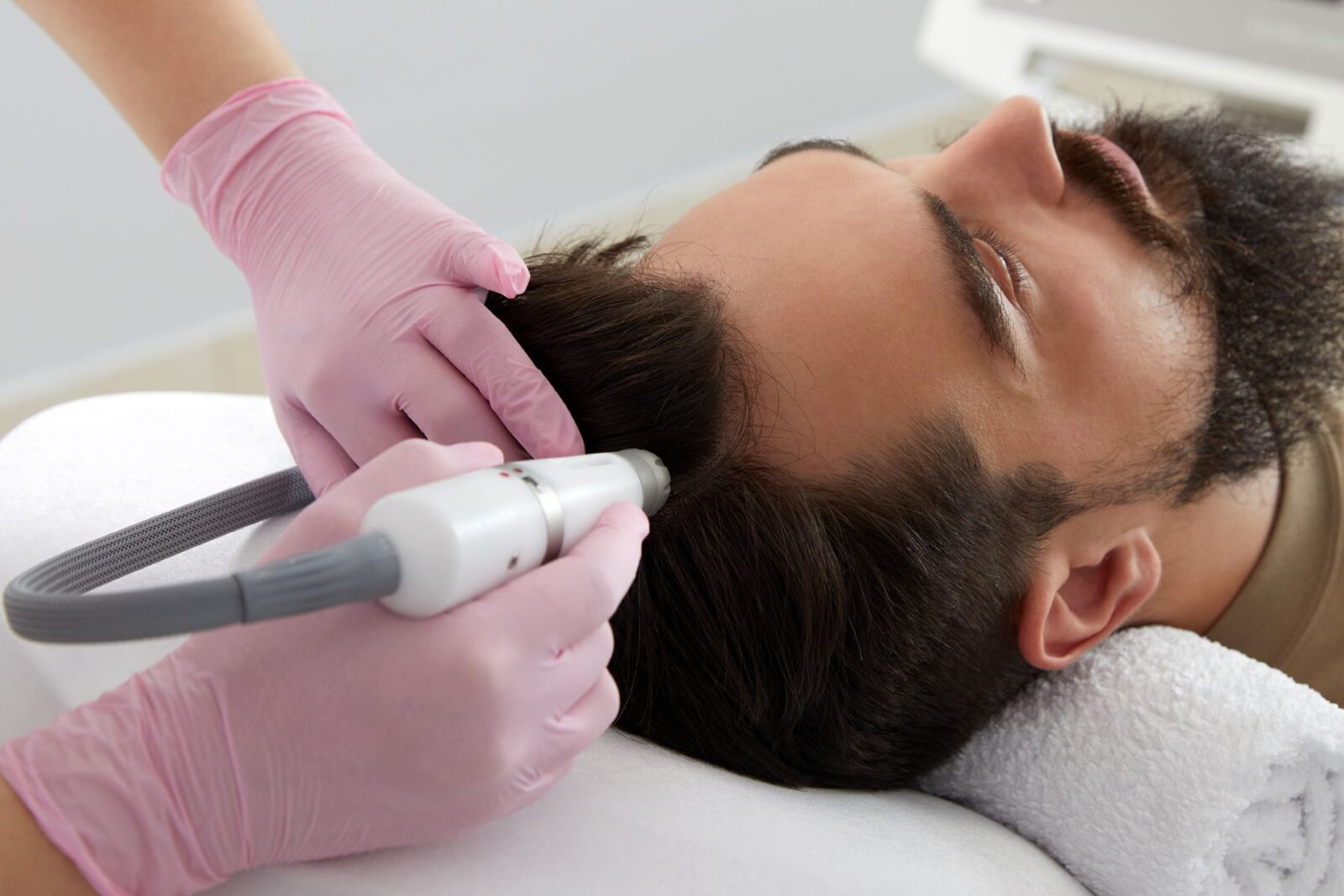
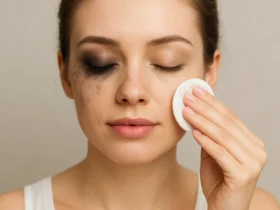




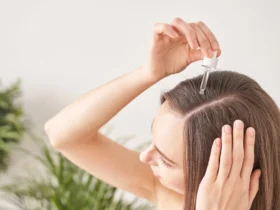
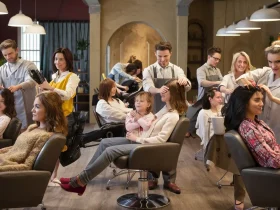
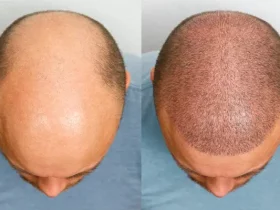
Hello!! My name is Annabella
I love to eat, travel, and eat some more! I am married to the man of my dreams and have a beautiful little girl whose smiles can brighten anyone’s day!